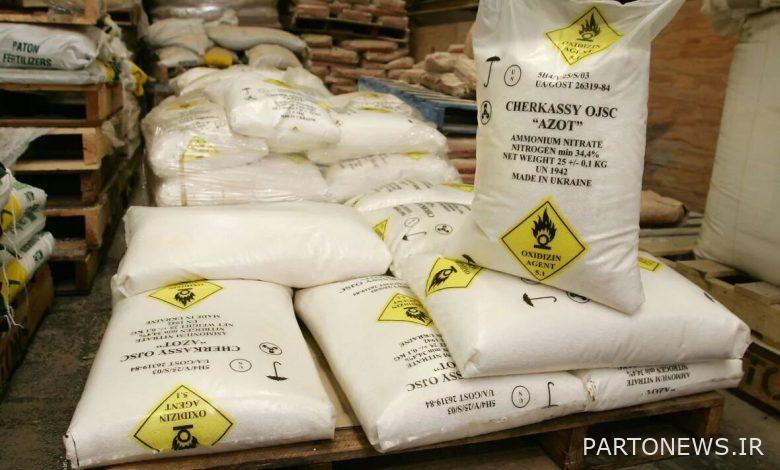Canadian expert warns of further rise in global food prices

According to an IRNA report on Tuesday, quoting the CBC website; Fraser, director of the Earl Food Institute and professor of geography at the University of Guelph in Canada, added that the shortage of fertilizers in Canada and in agricultural and food-producing countries will disrupt the food supply chain around the world, which means rising prices. It will be for consumers.
He added: “We are facing increasing problems due to the crisis in Ukraine, which is exacerbated by climate change and supply chain challenges following the epidemic, which will lead to the destruction of agriculture in many parts of the world, especially in places like Africa.” This is because the price of fertilizer, as one of the main costs for every farmer, has reached the highest level, which forces farmers to choose between paying exorbitant costs or finding alternatives.
According to Fraser; Sanctions, the Ukraine war and disruption of the supply chain are all factors in rising prices, and Russia’s position as the world’s largest exporter of fertilizers will have a major negative impact.
He added that in the event of a drought in North America next summer and the continuation of the war in Ukraine, food prices will rise further.
The Food and Agriculture Organization of the United Nations (FAO) Food Price Index shows that food prices were at an all-time high in March, and that the increase began and continued several months ago.
Fraser added: “Given that Ukraine and Russia are the major exporters of wheat in the world, the price of this commodity will rise.” Ukraine also produces sunflower oil, which is commonly used to make processed foods.
While this increase may be tolerable for the affluent, people who have previously struggled to make ends meet will feel the most pressure.
According to the Food Navigator website; The war in Ukraine and the economic situation in some countries have increased inflation in a number of world economies and created problems for the international community and the people of the world.
The 2010 drought in Ukraine and western Russia reduced yields, leading to higher food prices that year. This led to the implementation of export bans in many countries, which in turn led to food insecurity in many regions and led to riots and social unrest in parts of the world. This contributed to the Arab Spring process, the formation of a new geopolitical Middle East, the influx of asylum seekers into Europe, the rise of populism in Europe, the instability of the European Union, and finally a historic referendum in Britain.
The war in Ukraine has now caused the third global food crisis in at least 15 years. Millions of people are at risk of starvation in countries that are heavily dependent on food imports. Food insecurity is also on the rise in the world’s richest countries. Amid the Corona epidemic, doubts were once again raised about the world food system’s ability to withstand shocks.
Inflationary pressures also exacerbated problems as demand increased in the post-Corona era. All of these challenges have been exacerbated by the Ukraine war.
Russia previously supplied a third of the EU’s gas and a quarter of its oil. Russia and Ukraine export more than half of the sunflower oil traded between them. About a quarter of wheat and barley and a sixth of corn are traded in these markets, all of which are significant quantities.
Tim Benton, director of the Environment and Community Program at Chatham House, warned: “This crisis has the potential to cause far more disruption than rising food prices in the 2011-2011 season, because the consequences of food disruptions are fertilizers.” And the energy is potentially much greater.
“Energy prices are expected to rise to unprecedented levels this year,” he said. The situation is that the end of cheap and very available food will be very real for some people.
The Ukraine war may also dramatically change the structure of world politics, which will again affect the global food mechanism. For example, Russia, China, and India, which are joining the three forces of the “new Iron Curtain,” will have a very significant impact on global trade relations and, consequently, the ability to supply food at the prices at which we are accustomed.
“This may be the first type of conflict that is more about land as a strategic asset than oil,” Benton said. As we move through this century, we will clearly reach a point where oil-rich governments have less economic and political power, and it is likely that large, sparsely populated countries will be able to have new 21st century assets such as carbon storage. That’s why the earth is so important to nature, food, food and renewable energy.
Experts believe that the shortage of chemical fertilizers and sunflower oil due to the Ukraine war means an increase in goods in the demand chain.
The war in Ukraine has exposed the dangers of relying on a small number of major exporters of global food. Preventing a sharp rise in hunger is now the number one priority, but governments must also look to the future. Trade will continue to be an important factor, but food supply mechanisms need to be made more flexible to ensure that the next shock does not create another crisis, which means investing in domestic production and more diverse sustainable approaches to food production.

